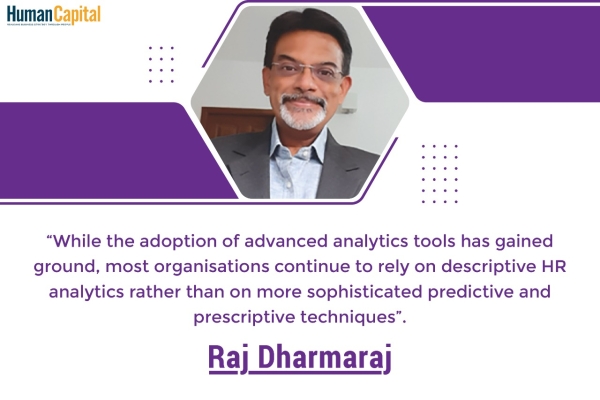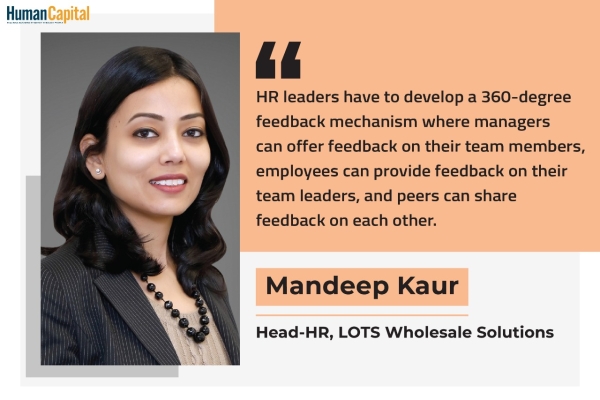The failure to have a successful talent management framework is a matter of concern for many organisations and a lot of this could be attributed to the myths associated with it.
Today, given the prevailing talent wars, it is critical for organisations to have a sound talent management strategy in place. Talent Management is the art of acquiring, nurturing, and retaining a workforce of productive and engaged employees to achieve organisational goals. However, the failure to have a successful talent management framework is a matter of concern for many organisations and a lot of this could be attributed to the myths associated with talent management. Some of the common myths have been mentioned in the paragraphs that follow.
Talent Management is HR’s responsibility
Most often, it is left to the HR to figure out and implement Talent Management, and when issues pertaining to poor engagement, higher attrition and lack of productivity arise, the talent management strategy stands questioned. The ownership of nurturing talent must be conjoined and the business should collaborate with HR and become a codriver in managing talent. Unless there is adoption at the top to fulfil the need to have a robust talent management strategy and a co-ownership in driving the same, talent management gets diminished to a mere paper model.
A One-size-fits-all approach
Talent management is one among the most complex programmes to decode and implement, and essentially so since it deals with humans. Every individual comes with a different potential and simultaneously has a different need. While some people may need an instructorled programme to learn, many others might learn when a new assignment is offered to them. Organisations should never fall into the trap of creating a standardised programme only because it is easy to implement and monitor since this may end up as being counterproductive. The true value of a talent management programme can be derived if it is built on specific individual needs, keeping the business objectives in mind.
Performance Management equals Talent Management
Often, Talent Management is misinterpreted with Performance Management and the focus is on giving high-performing individuals higher pay with an assumption that it shall lead to their retention. The problem with this approach is two-pronged - it only rewards performance and does not tap into the potential of individuals; this approach rests on the belief that compensation alone can motivate high performers. Talent Management, instead, goes beyond just pay and focuses on engaging with individuals at a deeper level. It cuts across the employee lifecycle and starts with hiring right, to
♦ Create customized learning solutions
♦ Create focused engagement plans
♦ Identify individual potential
♦ Offer meaningful work
♦ Create progressions plan and perhaps much more
Borrowing a talent management framework from journals or other organisations may never be a successful solution, as each business has its nuances and so do people. Hence, every organisation must establish what is needed for themselves and weave a framework around the same.
Talent Management is not for starters
Talent Management is often seen as a goodtohave amongst other processes in an organisation. Startups or organisations in nascent stages usually lay greater focus on talent acquisition vis-à-vis other aspects of HR. While it is crucial to onboard the right people, it is equally essential to take care of these peoples’ needs. Having the right people strategy since inception is critical, else one will always be seeking solutions for disengaged workforce and high attrition. Thus, every organisation, whether small or large, must have a clearly defined talent management strategy from the very beginning.
Focus on ‘HiPo’
‘High Potential’ programmes have been one of the most preferred ways of Talent Management since long where organisations identify a set of high performers and focus on their growth and development. But, Talent Management is not merely about focusing on and developing a minuscule employee percentage. Spending a disproportionate amount of energy and resources on a set of select people not only demotivates the remaining employees but also makes the organisation overlook the potential solid performers. While it is not wrong to focus on high performers, the hunger and ambition of others also needs attention.
A recent survey by Mercer & Mettl on HiPo programmes suggested that close to 40% of organisations do not know whether the results of their HiPo programme were successful or not. This also stems from the fact that these talent management programmes do not have a consistent definition of ‘potential’ and each organisation coins its own. A model that hinges upon ‘potential’ and ‘performance’ as two critical factors, having a wrong definition or measuring criteria of potential can be detrimental. It is therefore essential that the talent management framework clearly defines talent and has a clear line of sight on the desired outcomes from the programme.
Talent management is expensive
Another interesting myth about talent management is that it adds an additional burden on the budget. In fact, the absence of a talent management framework can prove to be highly detrimental for organisations. For instance, it is important for organisations to invest in the growth and development of its people because unskilled or semi-skilled workforce decelerates you and reduces the quality of your output. As a result, you are investing more time in fixing the gaps, and hence, forced to deal with lower productivity. In addition to the visible advantages of having a talent management framework in place, its absence leaves you with the disadvantage of losing your talent to organisations that have one. This leads to higher attrition and greater replacement cost.
Talent Management cannot be measured
Last but not the least, another myth about talent management is that its efficacy cannot be measured, and HR cannot provide substantial quantifiable data about how it creates value for the organisation. However, this is not the case as there many metrics available which can help gauge the effectiveness of talent management strategy of an organisation. For example, organisations can measure the effectiveness of onboarding programme, learning initiatives and employee engagement initiatives by metrics like employee retention rates, early attrition rates and turnover costs. Similarly, cost per hire, TAT to close a position, and offer to joining ratio can help in measuring the effectiveness of talent acquisition process.
Talent management is the need of the hour and there are some big trends which are shaping the talent management process today. A robust talent management plan helps improve business performance, ensures retention, builds a strong employer brand, and offers a competitive edge to organisations. One needs to be careful and not fall for the myths!

Do you look forward to permanently working from home after the pandemic subsides?
Trending
-
SBI General Insurance Launches Digital Health Campaign
-
CredR Rolls Out 'Life Happens' Leave For Its Employees
-
Meesho Announces 30-Week Gender-Neutral Parental Leave Policy
-
Microsoft Unveils Tech Resilience Curriculum To Foster An Inclusive Future
-
60% Indian Professionals Looking For Job Change Due To COVID: Survey
-
SpringPeople And Siemens Collaborate For Digital Transformation Push
-
86% Professionals Believe Hybrid Work Is Essential For Work Life Balance: Report
-
Almost 1 In Every 3 People's Personal Life Affected Due To Work Stress
-
Meesho Rolls Out Reset And Recharge Policy For Employees
-
80% Of Talent Leaders & Academics Say Pandemic Changed Skill Needs For Youth: Report
-
Hero Electric Rolls Out 'Hero Care' Program For Employees
-
Human Capital In Collaboration With ASSOCHAM Hosts Virtual Conference
-
IKEA India, Tata STRIVE Collaborate To Create Employability And Entrepreneurship Opportunities
-
SAP India, Microsoft Launch Tech Skilling Program for Young Women
-
DXC Technology, NASSCOM Collaborate For Employability Skills Program
-
Lenskart To Hire Over 2000 Employees Across India By 2022
-
Mindtree Launches Learn-and-Earn Program
-
Tata AIA Extends 'Raksha Ka Teeka' To Its Employees
-
Swadesh Behera Is The New CPO Of Titan
-
NetConnect Global Plans To Recruit 5000 Tech Professionals In India
-
Hubhopper Plans To Hire 60% Of Indian Podcasters By 2022
-
Corporate India Needs More Women In Leadership Roles: Report
-
Aon to Invest $30 Million and Create 10,000 Apprenticeships by 2030
-
Tech Mahindra Launches ‘Gift a Career’ Initiative for Upskilling of Youth
-
40% Women Prefer Flexible Working Options in Post-COVID World: Survey
-
3 out of 4 companies believe they can effectively hire employees virtually: Report
-
Vodafone , CGI and NASSCOM Foundation launch digital skills platform
-
Odisha: Bank, postal employees to deliver cash for elderly, differently-abled persons
-
Skill India launches AI-based digital platform for "Skilled Workforce"
-
Hiring activity declines 6.73% in first quarter: Survey
-
70% startups impacted by COVID-19 pandemic
-
Bajaj Allianz Life ropes in Santanu Banerjee as CHRO
-
Over 70 Percent MSMEs look at cutting jobs to sustain businesses
-
93 Per Cent employees stressed about returning to office post-lockdown
-
Johnson & Johnson India announces family benefits for same gender partners
-
Indian firms turning friendly towards working mothers
-
Welspun India names Rajendra Mehta as new CHRO
-
Wipro partners with NASSCOM to launch Future Skills platform



Human Capital is niche media organisation for HR and Corporate. Our aim is to create an outstanding user experience for all our clients, readers, employers and employees through inspiring, industry-leading content pieces in the form of case studies, analysis, expert reports, authored articles and blogs. We cover topics such as talent acquisition, learning and development, diversity and inclusion, leadership, compensation, recruitment and many more.
Subscribe Now












































Comment